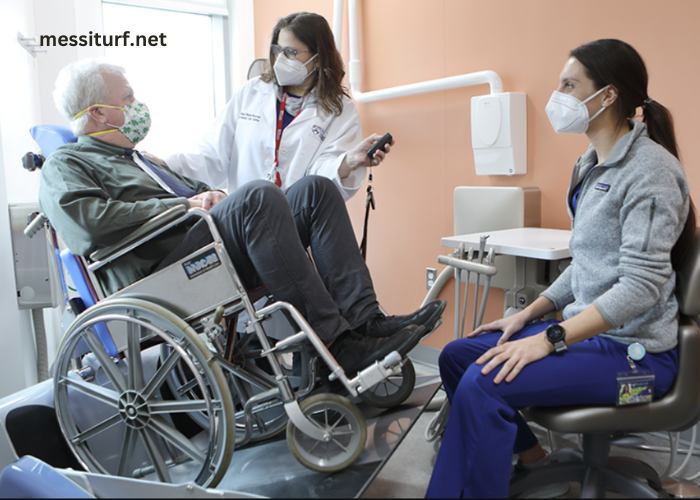Dental care is a crucial aspect of overall health and well-being for everyone, including special needs patients. Special needs individuals may face unique challenges when it comes to dental health, making it essential to provide them with customised and compassionate care. This article will explore the importance of general dentistry services for special needs patients and how dental professionals tailor their care to meet the specific needs of these individuals.
Creating a Comfortable Environment
For many special needs patients, the dental office can be an intimidating and overwhelming place. Dental professionals recognise the importance of creating a calm and welcoming environment to help alleviate anxiety. This may involve soothing decor, gentle lighting, and a staff trained to interact with special needs patients compassionately and patiently.
Communication and Trust Building
Building trust is a fundamental aspect of providing dental care to special needs patients. Dentists and their teams take the time to communicate with patients and their caregivers, establishing a rapport and ensuring they understand the procedures and treatments involved. Visual aids, simplified language, and social stories may be used to enhance communication and comprehension.
Tailored Treatment Plans
These services for special needs patients involve creating personalised treatment plans that address their specific oral health needs. Dental professionals consider the patient’s medical history, sensory sensitivities, and communication abilities when devising these plans. This may include adjusting appointment durations to accommodate the patient’s comfort level and attention span.
Behaviour Management Techniques
Special needs patients may exhibit challenging behaviours during dental appointments due to anxiety or sensory sensitivities. Dental professionals are trained in using behaviour management techniques to help these patients remain calm and cooperative. Techniques such as desensitisation, positive reinforcement, and distraction can be effective in reducing anxiety and ensuring a successful dental visit.
Sedation and Anesthesia Options
In some cases, special needs patients may require sedation or anaesthesia to undergo necessary dental procedures safely. Dental professionals work closely with medical specialists to determine the most appropriate sedation options. These options range from mild sedation to general anaesthesia, with the goal of ensuring the patient’s comfort and safety throughout the procedure.
Preventive Care
Preventive care is a cornerstone of general dentistry, and it is equally essential for special needs patients. Dental professionals emphasise the importance of regular check-ups, cleanings, and fluoride treatments to maintain optimal oral health. They may also guide oral hygiene practices that caregivers can implement at home.
Orthodontic Care
Orthodontic issues can impact the oral health and overall well-being of special needs patients. Dental professionals assess the need for orthodontic intervention and may recommend treatments such as braces or orthodontic appliances to correct alignment problems. The goal is to ensure that the patient’s bite and jaw function correctly, which can improve their speech and chewing ability.
Access to Specialised Equipment
Dental offices that cater to special needs patients often invest in specialised equipment and tools to accommodate their unique requirements. This can include wheelchair-accessible treatment rooms, supportive seating, and sensory-friendly instruments. These accommodations make it easier for patients with mobility challenges to receive the care they need comfortably.
Educating Caregivers
Educating caregivers is a vital aspect of these services for special needs patients. Dental professionals provide caregivers with guidance on oral hygiene routines, dietary choices, and strategies to maintain the patient’s oral health at home. This partnership between dental providers and caregivers is essential for the long-term well-being of the patient.
Conclusion
General dentistry services for special needs patients involve a holistic and patient-centred approach. Dental professionals go above and beyond to create a comfortable and accommodating environment, tailor treatment plans, and use specialised techniques to provide customised care. By prioritising the oral health of special needs patients, dental professionals contribute to their overall well-being and quality of life, ensuring that everyone has the opportunity to enjoy good oral health.




